These earplugs are great for people who are sensitive to sound
How to find the right noise-reducing earplugs for you
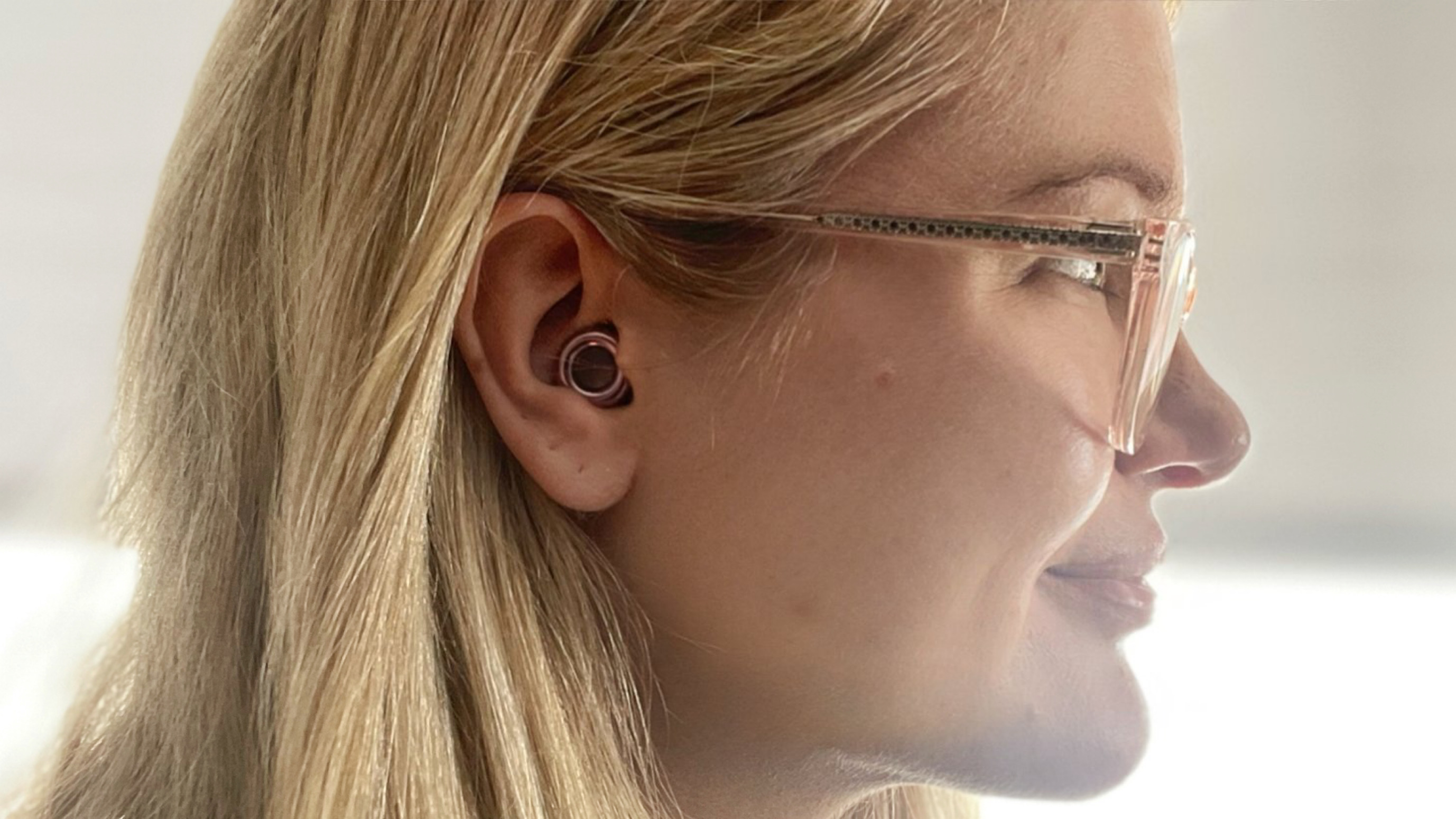
Sound sensitivity, or auditory sensitivity, is often used as a catch-all term. Simply put, it’s when sounds that seem ‘normal’ to other people are louder to you, irritating or even painful.
It can be challenging to navigate sounds throughout the day if you have auditory sensitivity, especially in an environment you can’t control, like an open-plan office or a busy train.
There are treatments available that might help you better cope with sounds. But there are also options available to reduce them. The best noise-cancelling headphones can help, as well as some of the best earplugs for sleep.
However, when you’re sensitive to sound, you often don’t want to block out all sounds, just those that bother you. And what bothers you might not bother me, and vice-versa. That’s why it’s difficult to recommend a solution that’ll work for everyone.
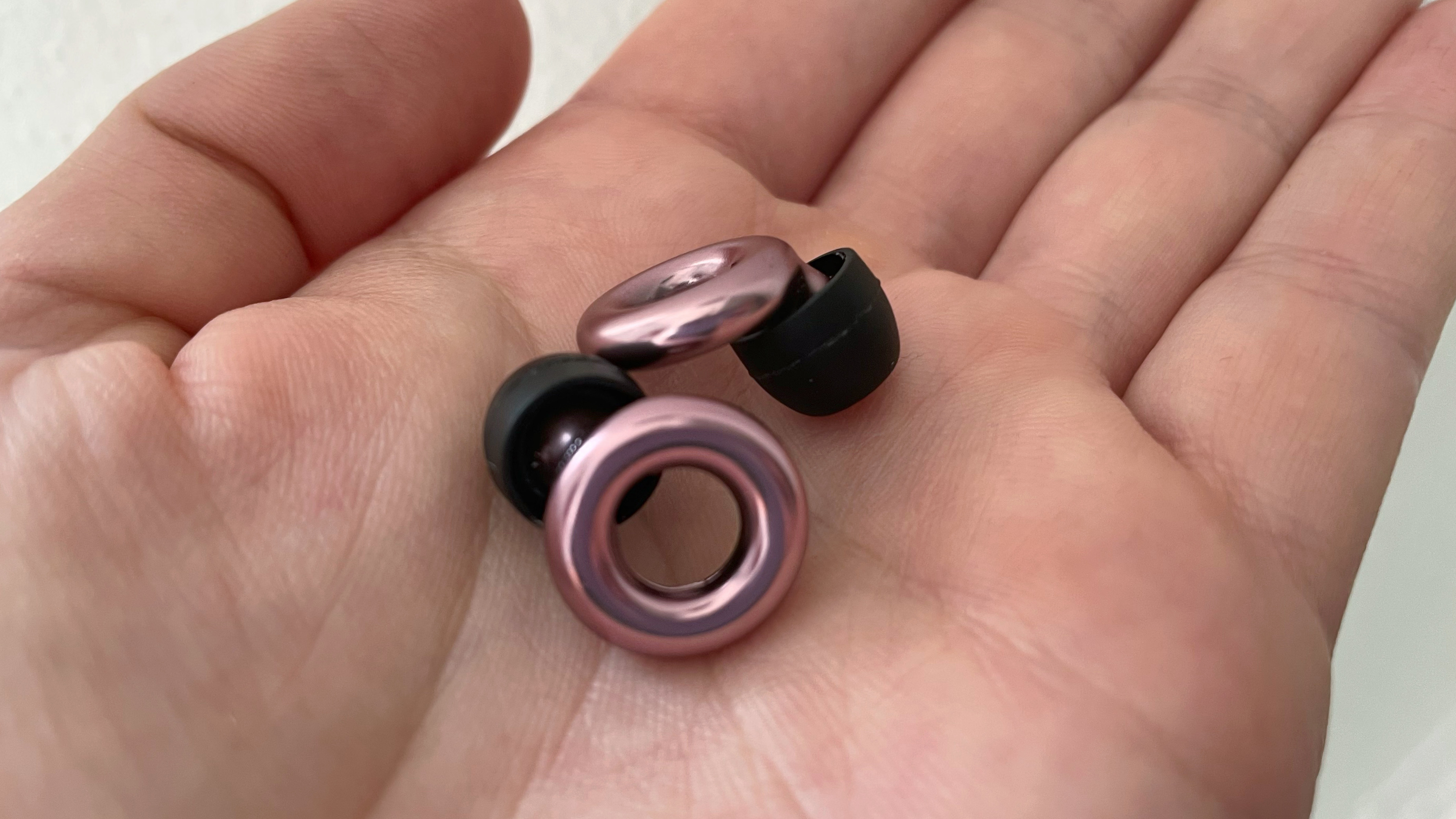
I’ve been using the Loop earplugs for nearly a year now, and I think they’re a great option if you don’t know where to begin.
They’re soft, block out varying levels of sound depending on the type you pick, look good and are marketed at people like me who are sensitive to sound.
In this guide, we’ll learn more about auditory sensitivity, the different types of Loop earplugs available, alternatives designed for anyone sensitive to sound, and how to decide whether you need earplugs or earbuds.
What is sound sensitivity?
If you have sound sensitivity or auditory sensitivity, you might find some sounds very loud, irritating, distressing, or even painful.
Someone with misophonia is typically disgusted or irritated by the sounds of people eating. Autistic people, or those with ADHD, sometimes find sounds extremely loud or have difficulty processing sounds in stressful or already noisy spaces.
People who have hyperacusis (the proper term for noise sensitivity) may find everyday sounds louder than other people do. Then some might feel irritated by sounds now and again or find it difficult to focus when they’re in crowded or noisy spaces.
Because we all experience sound differently – even two neurodivergent people or those with the same hearing difficulties – it’s challenging to find the right solution.
Talk to a doctor about your sound sensitivity if it’s new or causing you pain or distress. They’ll be able to recommend the best options for managing it and help you determine the kind of support or further investigation you might need, too.
It’s worth considering that some experts believe earplugs are helpful, but others warn not to wear them all the time. Ask your doctor about the best options for you.
How to choose the right earplugs for sound sensitivity
There are so many different earplugs to choose from. Some are designed for when you're swimming and showering to stop water getting into your ears; others for complete silence; and there are plenty for people who are around a lot of loud noise during the day – like on a building site.
Luckily, several brands market their products to people with sound sensitivities, which is helpful and an excellent place to start. Although that doesn't mean you have to choose those brands.
Instead, it makes sense to look out for a few key things when you're buying earplugs for sound sensitivity.
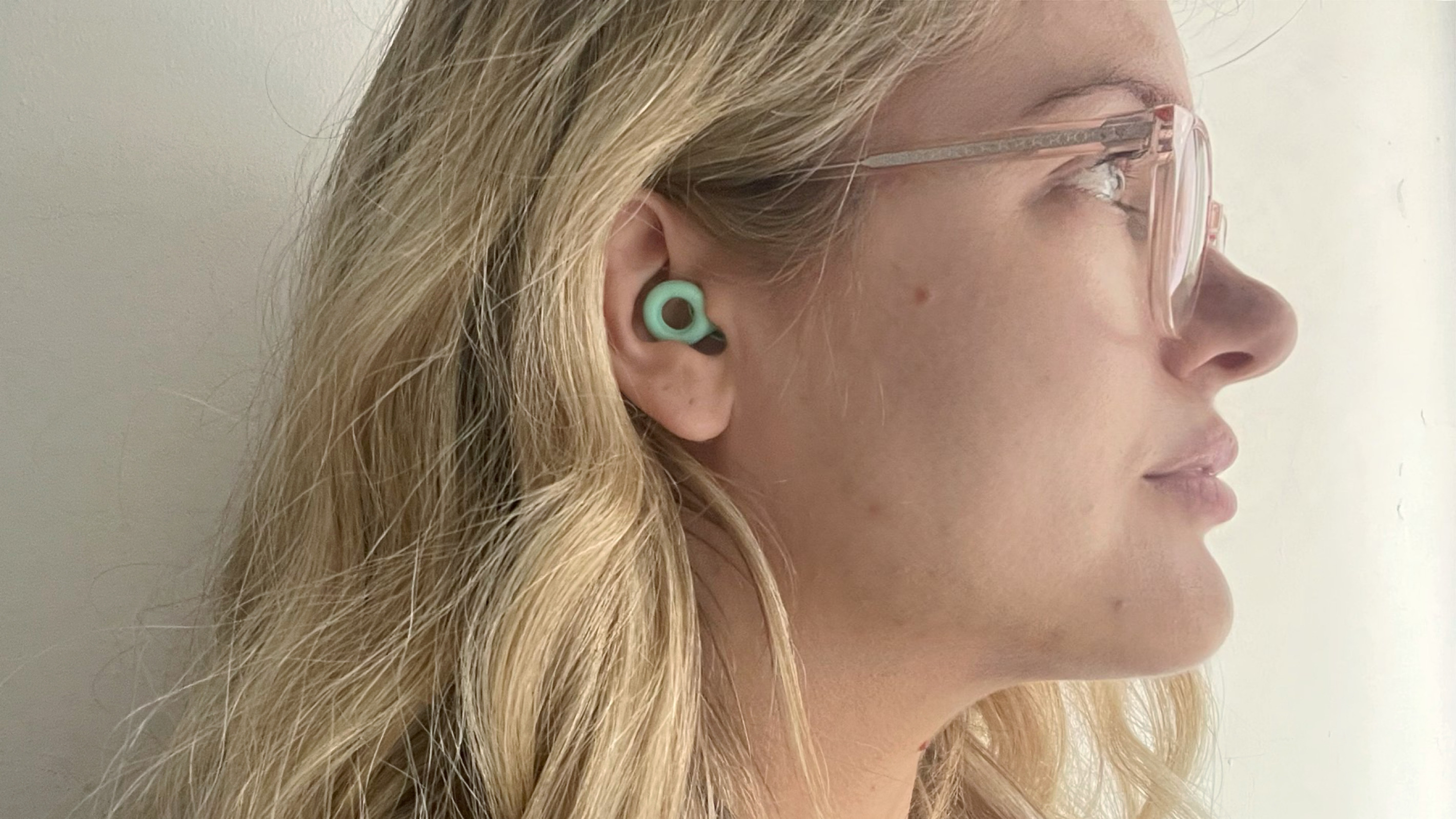
The first thing to consider is how much they reduce sound. If you're very sensitive to sound, you'll want to try more reduction. If you'd like to ease general stress each day, and still want to be able to hear the doorbell or even attend meetings, you won't need as much reduction. If you've never tried earplugs before, this can be difficult to work out.
There are some different ratings to look for. In some countries, this is called a Noise Reduction Rating (NRR) and measures the effectiveness of reducing sound in decibels (dB), the units sound is measured in. Confusingly, some brands refer to a Single Number Rating (SNR), which tells you how much hearing protection you'll get at certain frequencies.
You won't find an NRR or SNR on every set of earplugs, but you should look for details about decibel reduction.
Generally, earplugs that reduce sound by less than 20dB will quieten some noise but allow you to hear most sounds. These earplugs tend to be best for general sound sensitivity during the day and those who experience sensory overwhelm, as they don't completely block out sound. You can get on with your day, but sounds are quieter.
Between 20dB and 25dB will reduce the volume more, but you'll still hear loud sounds. These are popular for sleep and concerts. More than 25dB, and you'll experience a lot of noise reduction and even silence depending on your hearing. Some people need this level of quiet for sleep.
However, this gets more confusing when specific earplugs claim to reduce decibels across different frequencies, like the Flare Calmer and Vibes earplugs below.
For example, the Flare Calmer earplugs are designed to block out frequencies more likely to cause stress. The Vibes are designed to give a frequency response suited to musicians or concerts, allowing you to still hear music.
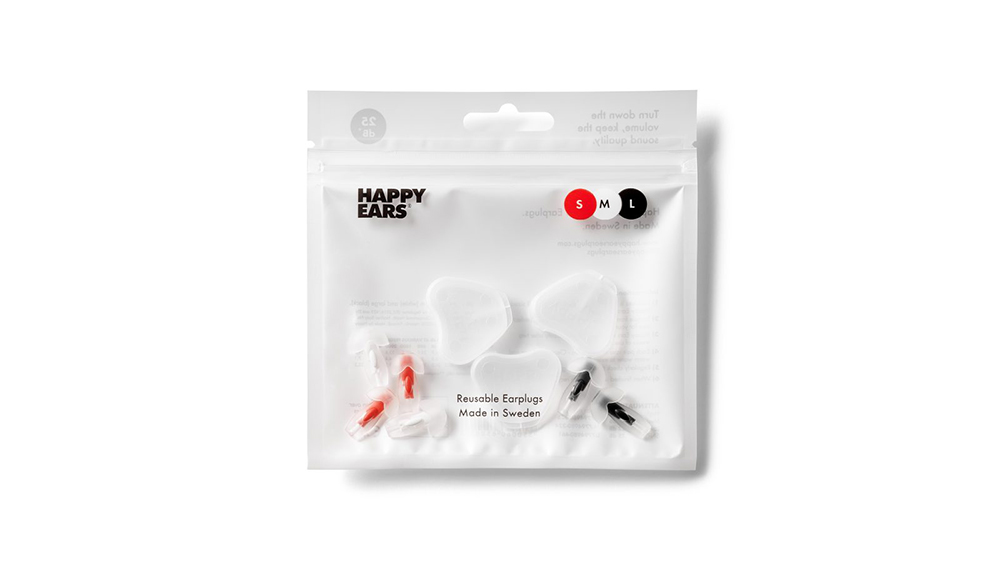
Another major factor is comfort. Earplugs should feel good, so you can wear them when you need to. But this is also important because many people with sound sensitivity also experience tactile sensitivity (or tactile hypersensitivity), especially Autistic people.
The material earplugs are made from helps to figure out whether they'll be comfortable for you or not. For example, foam earplugs tend to be the best at reducing sound, and some have a noise reduction rating of 32dB. However, these earplugs work by completely filling up your ear canal, a feeling some people don't like.
Other people like moldable earplugs, which are recommended if you need to keep your ears dry while swimming or showering. They have a tacky, pliable texture and are a good option if earplugs never seem to fit right for you. However, like foam earplugs, they will make your ear canal feel full and offer high noise reduction.
Many others, including the earplugs in this list, are made mostly of silicone, making them light to wear and comfortable, especially if they come with a selection of silicone tips. They still plug your ear canal (hence why they're called earplugs) but there isn't the same feeling of pressure or a tight seal as there is with foam earplugs.
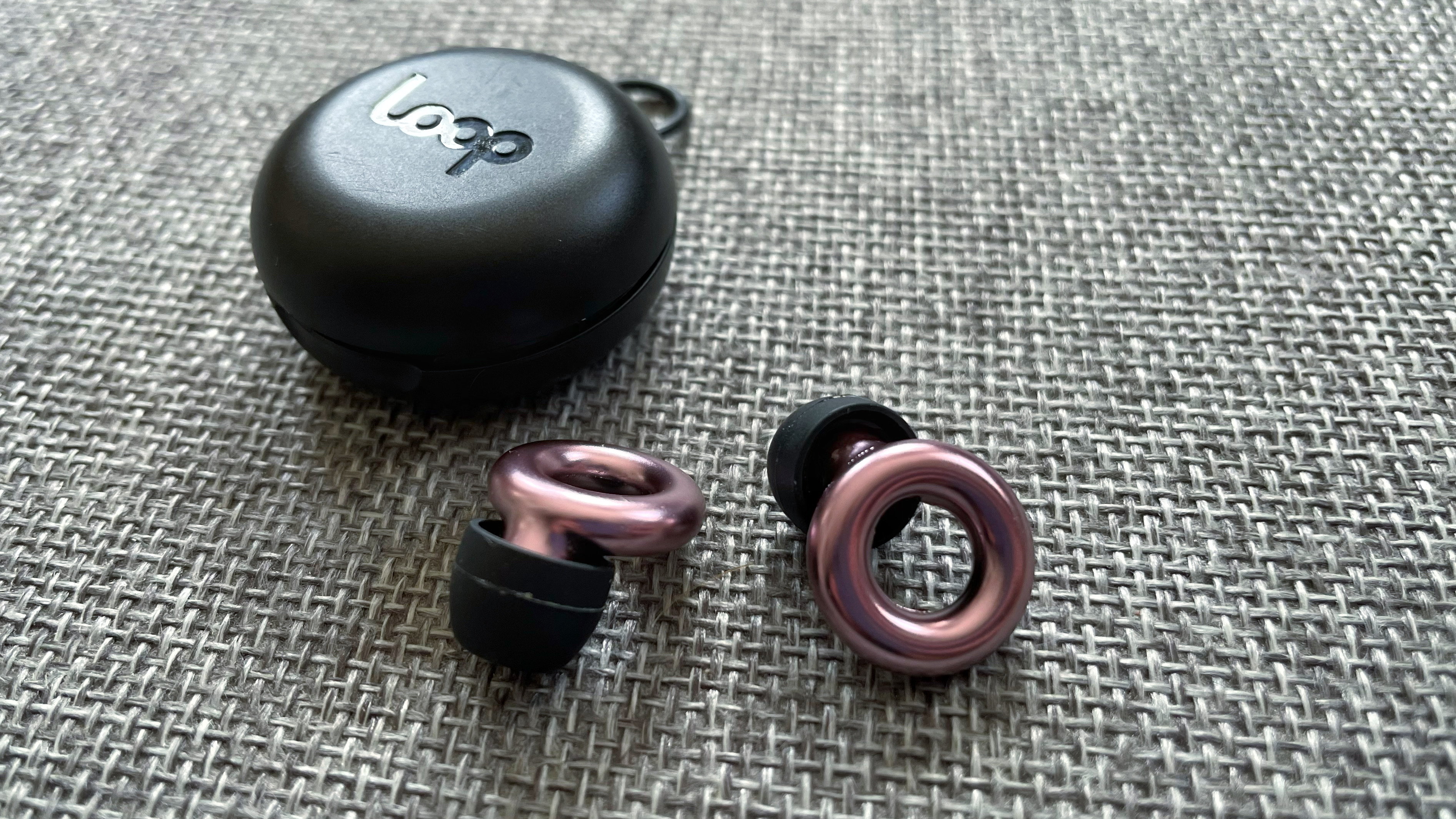
The best earplugs for people who are sensitive to noise
I first saw an ad for the Loop earplugs on Instagram, and I was wary. I thought they might be all style over substance with their cool colors and unique design.
But fast-forward a year, and they're my go-to earplugs. I use the Loop Experience for focus and to deal with sensory overwhelm and the Loop Quiet for sleep.
The Loop Experience earplugs are designed to reduce noise by 18 to 20dB, which Loop describes as ‘low noise reduction’. These are great for when you need to hear speech and loud sounds but want to quieten things down a little.
You can also buy an added accessory from Loop called Mute, a small attachment to reduce noise in your Loop Experience earplugs by a further 5dB.
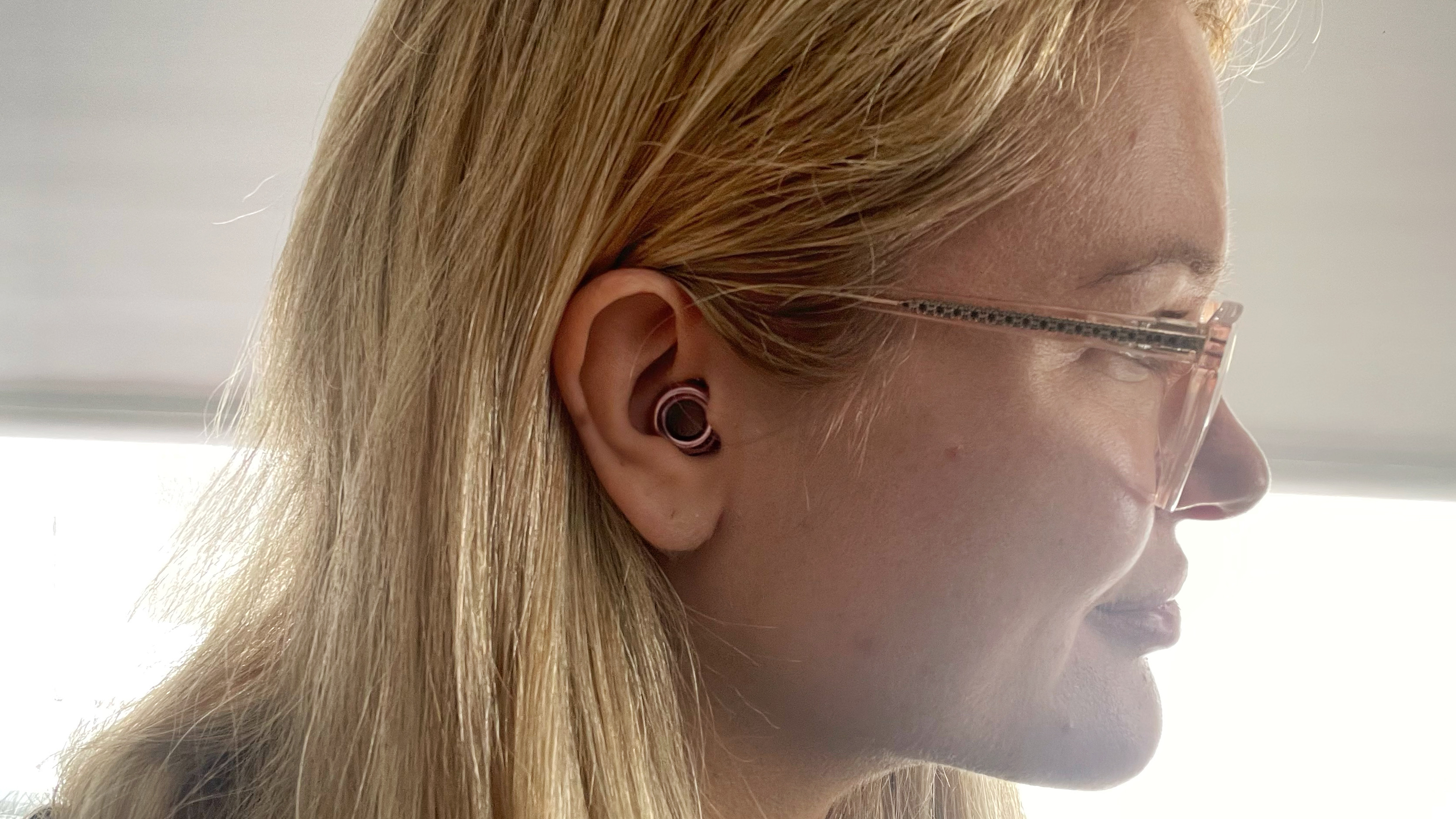
These are my favorite options to wear during the day when I need to focus but don’t want to listen to music, when I’m feeling stressed and want to dampen sensory overload and when I’m on a busy train or bus. I can hear speech, I can hear myself speak, but everything feels quieter.
I use them regularly but, importantly, try to keep them in only when I need to – which is around an hour or two during the day.
When I initially tried the Loop Experience earplugs, I thought they blocked out a little too much sound and used the Flare Calmer (see below) instead. But over time, the Flare Calmer weren't as comfortable for me – my ear canals ached a bit after wearing them – and the Loop Experience are now my top choice.
The Loop Quiet earplugs are more like typical earplugs in that they reduce noise by 25 to 27dB, which Loop calls a 'medium' noise reduction.
For me, they significantly reduce most speech, music and noise. They’re the perfect option for sleep, and one of the few designs that suits side sleepers.
However, they won’t be for everyone as some people prefer absolute silence. My ears are picky in that I need quiet, but not complete quiet.
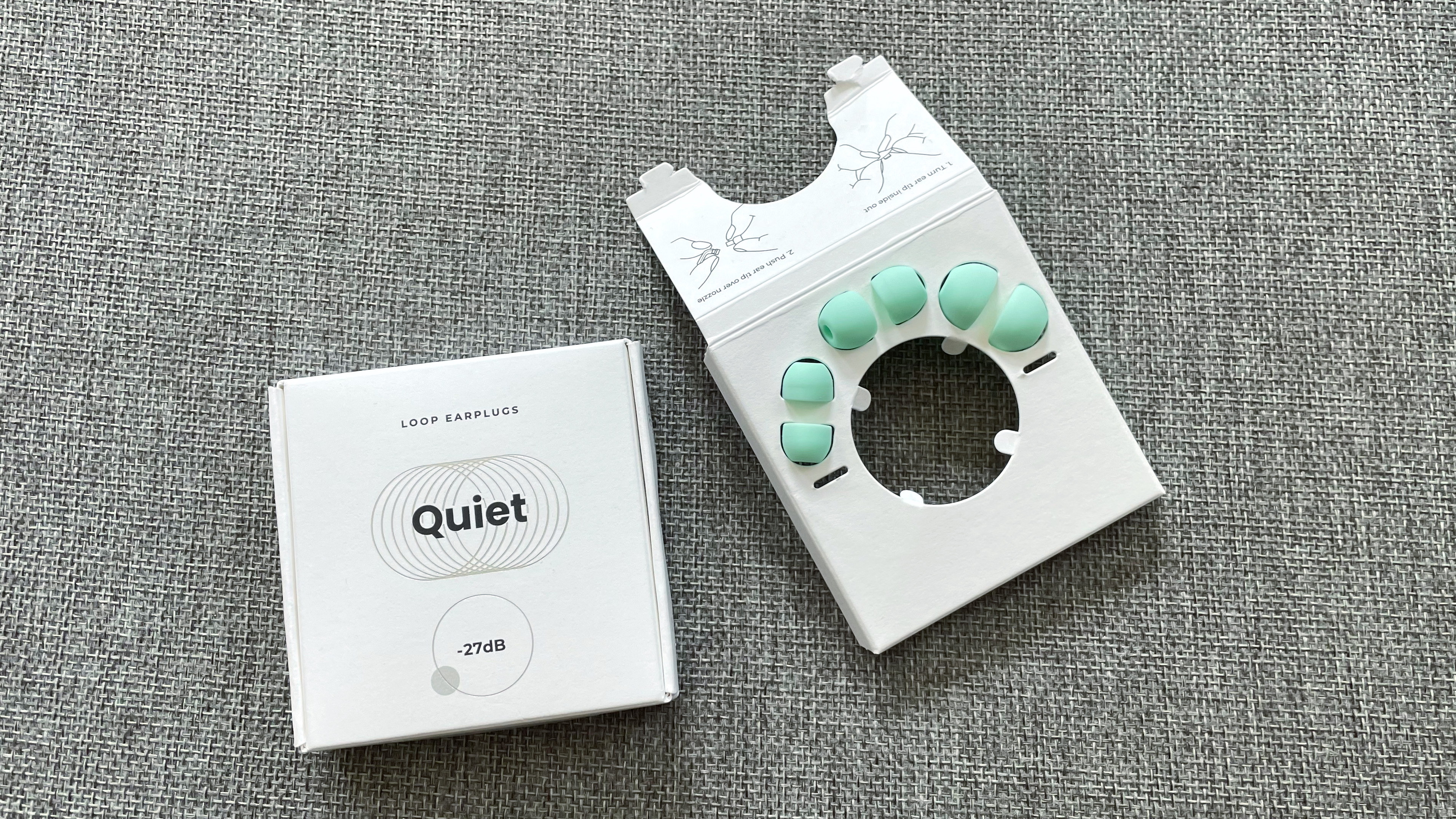
Both types of Loop earplugs are made from soft silicone – it’s why they’re so comfy and great for sleep – and have a little loop (hence the name) on the bit that sticks out of your ear. This design makes them look like cool jewellery, but it also means they’re easy to twist in and out of your ear canal.
They come with a small carry case and a selection of ear tips to choose from. This is what makes them a perfect fit. I had to try three different tips before I settled on one of the smallest sizes, so I recommend them if you have small ear canals.
But, it bears repeating: how we all hear and what we find comfortable differs from person to person. That’s why we need to take a look at other options.
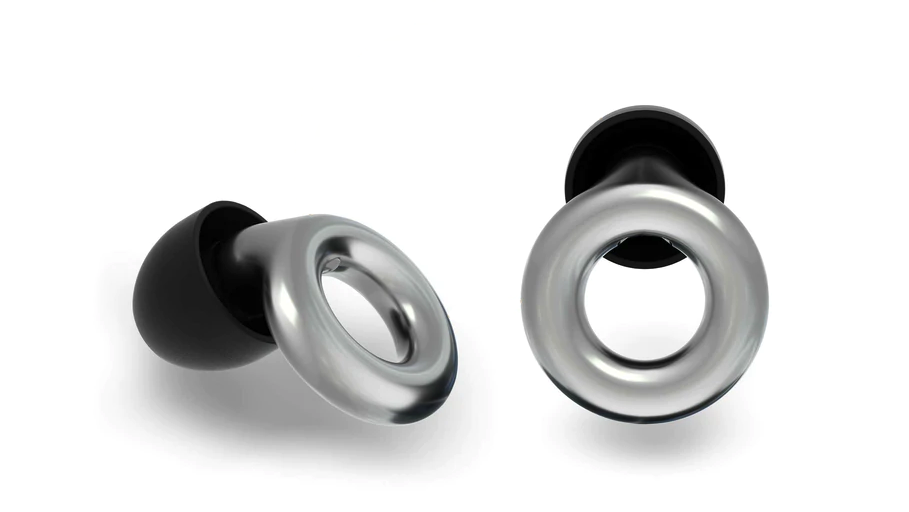
1. Loop Experience Earplugs
Specifications
Reasons to buy
Reasons to avoid
The Loop Experience earplugs are an excellent choice for general sound sensitivity as they reduce enough noise to make a difference but not enough to block all sounds.
There are four ear tips to choose from, and the silicone they're made from is soft and extremely comfy. A cute little carry case comes with the Loop Experience, and you can buy an additional accessory called the Mute (this fits into the 'loop' of the Loop) for 5dB more noise reduction.
There are a range of colors to pick from, including black, silver, gold and rose gold. You can go for simple and understated or make your earplugs an accessory.
There's another version called the Loop Quiet, which provides more noise reduction and is excellent for sleeping – yes, even side sleepers.
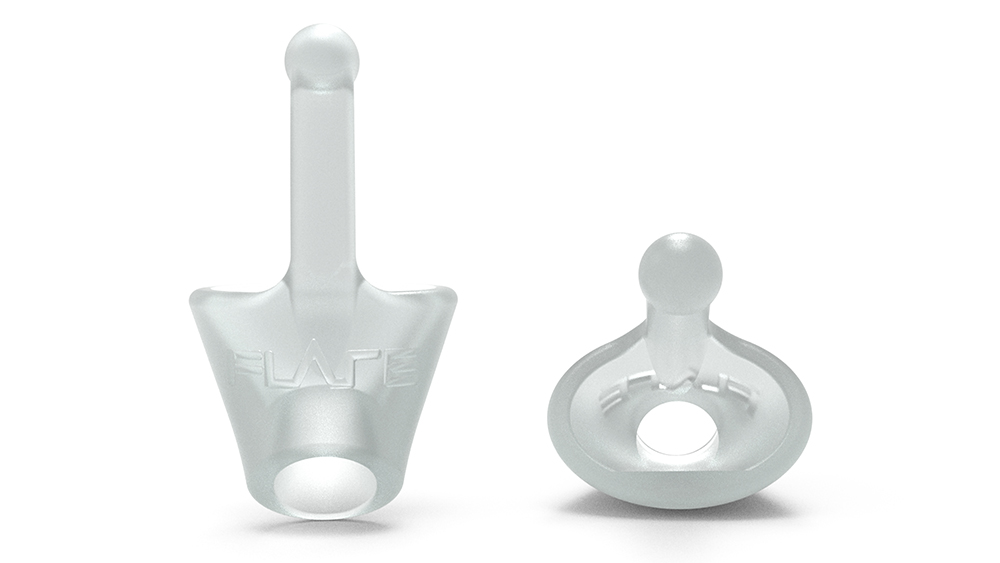
2. Flare Audio Calmer Earplugs
Specifications
Reasons to buy
Reasons to avoid
The Flare Calmer earplugs stand out from the rest as they're not designed to reduce noise drastically but reduce noise frequencies that are most likely to cause stress.
For that reason, don't expect noise reduction here. But, if you have sound sensitivity, you might find they ease stress, irritation and overwhelm.
Some online reviewers and people I spoke to for this article said that the Flare Calmer have been genuinely life-changing for them – especially Autistic people.
These are the only pair I can wear all day on calls while talking to people and around traffic without feeling cut off from the world.
During testing, I found these earplugs to be great for reducing stress throughout the day. I was, as the name suggests, calmer while wearing them. However, they didn't provide enough noise reduction when I wanted to really focus. I also found them to be a bit uncomfortable after a few hours of wear.
Do bear in mind that some experts wouldn't recommend wearing them 24/7 as they're unsure of how this might affect your hearing and auditory sensitivity in the long run.
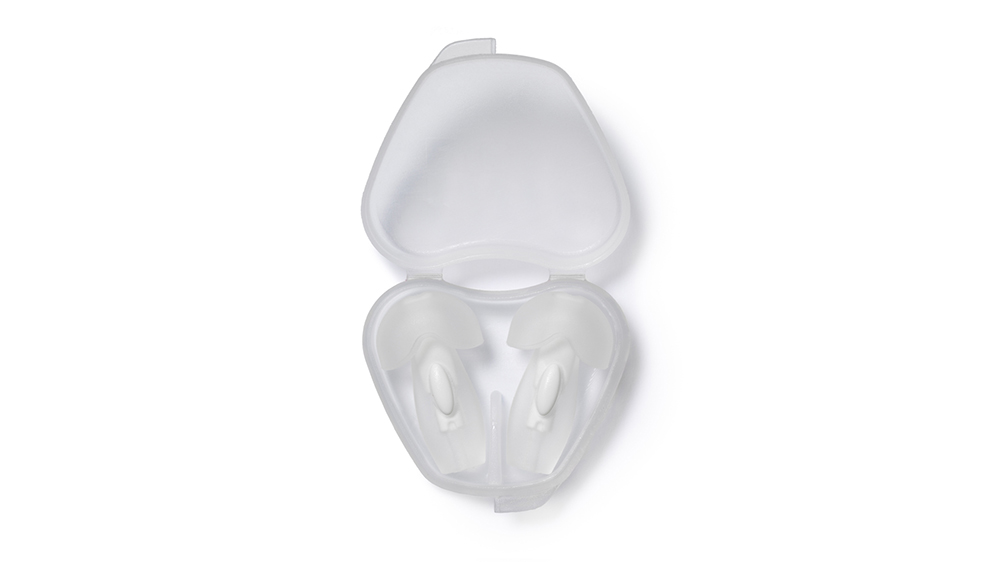
3. Happy Ears Earplugs
Specifications
Reasons to buy
Reasons to avoid
These earplugs reduce the most noise among our top earplugs picks, but they're good all-rounders as they work well for sleep (although not for side sleeping) and provide good noise reduction for the daytime.
During testing I used these for short periods of focus rather than longer use, like the Flare Calmer or Loop Experience.
They're incredibly comfortable – the silicone tips mould to your ear canal with increased wear – and to find the best fit, you can order a discovery pack, which allows you to try a few different sizes. They also come in a handy carry case.
There are a few different types of Happy Ears. They all work the same, but some are made from recycled materials and ocean plastics. These versions are slightly more expensive but worth it if you're trying to cut down on waste.
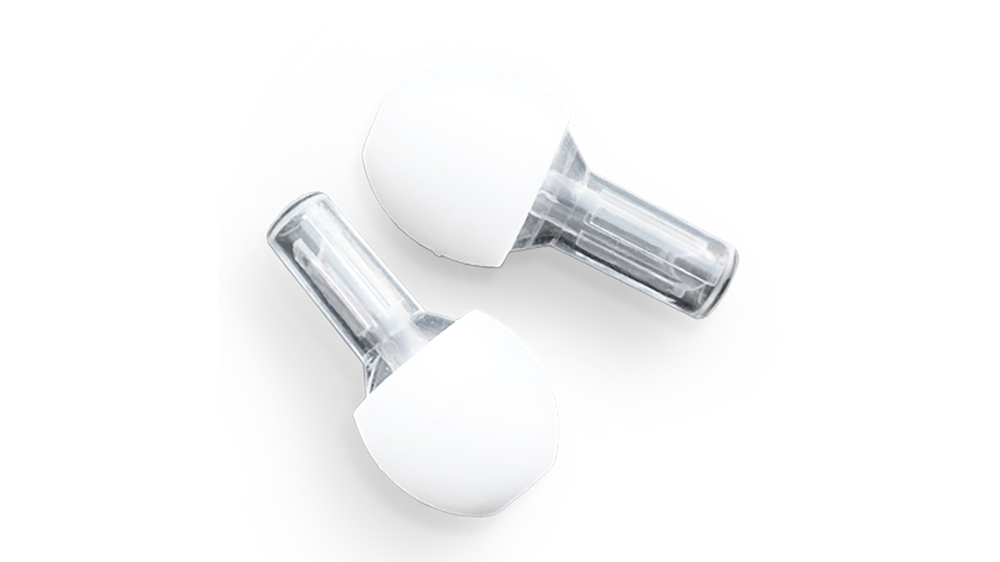
Specifications
Reasons to buy
Reasons to avoid
These are comfortable and easy-to-use earplugs designed specially for musicians and use at concerts.
The company claims that they drop 22dB across the frequency range to maintain tonal balance and allow you to enjoy music as it was meant to be heard, but just at a lower volume.
During testing, we found they were comfortable and did make loud concerts more enjoyable. They're also very easy to take in and out of your ear. But they're not as comfortable as other options for longer use and won't work for side sleeping.
What's more, audiophiles might not be happy with the loss of resolution in high frequencies. However, their ease of use make them a great companion for a night of live music if you're sensitive to loud sounds but don't want to miss out.
Read our full review: Vibes high-fidelity earplugs review
Should you consider noise-cancelling headphones for sound sensitivity?
Some people with auditory sensitivity use noise-cancelling earbuds and headphones instead of earplugs. This is ideal if you want the best of both worlds – sound that you choose or total silence – with the push of a button.
If you have ADHD it can be particularly useful, as you can block out irritating sounds but feel stimulated by your own music as and when you want.
Stacey Liezl has ADHD and tells me via Twitter: "Earphones plus pink noise playlists have saved me. It’s definitely an issue when it comes to focus and just general irritation.”
Rachel Mantock also uses earbuds instead of earplugs for sound sensitivity. "I need something stimulating to listen to, to concentrate, while blocking out other sounds," she tells me via Twitter.
"But I use them as earplugs on the underground sometimes, with no music playing, making use of the noise cancellation. Because the crowds and just the sound of the train moving can sometimes be overwhelming," she says."
Similarly, for those with tinnitus silence can make symptoms worse. So a pair of noise-cancelling earbuds that block out environmental sounds but allow you to play your favorite tracks can be helpful.
Tom Pritchard says via Twitter that to manage his tinnitus he uses in-ear headphones and white noise. “Actual sound-blocking earbuds just leave the whine of tinnitus that makes it even harder to sleep.”
How to choose noise-cancelling headphones for sound sensitivity
Choosing the best noise-cancelling headphones if you have an auditory sensitivity is the same as finding the right earplugs – everyone is different.
You'll need to consider comfort and find a pair of headphones that'll suit you.
If you're sensitive to sounds during the night, your choice is limited. Depending on your sleeping position, it can be tricky to find the best earbuds for sleep. Read our Bose Sleepbuds II review for a pair of buds designed specially for night-time use.
The next thing to consider is noise cancellation. If you're extremely sensitive to sound, you might be best suited to a pair of the best noise-cancelling headphones or the best over-ear headphones. If you're going for extreme noise cancellation, just be sure to take a break throughout the day.
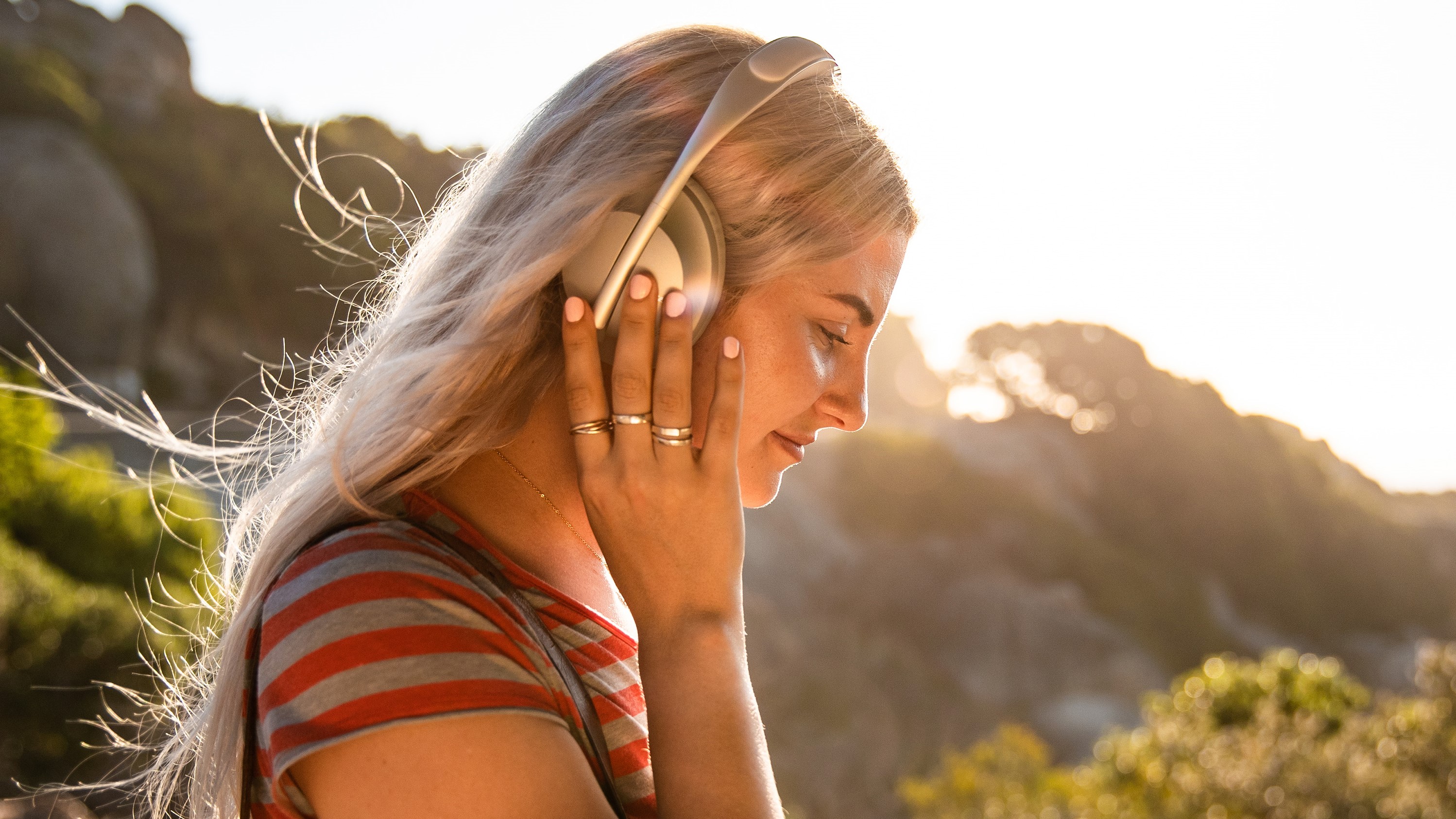
Take a look at our Sony WH-1000XM3 Wireless Headphones review and Bose Noise Cancelling Headphones 700 review, these are the most highly-recommended pairs of over-ear cans money can buy with class-leading ANC built-in.
But you don't need to spend a fortune for noise-cancelling headphones. Some of the people I spoke to said they rely on cheaper, reliable options that are wireless for maximum comfort and flexibility.
Check out our best wireless earbuds and best cheap wireless earbuds guides for suggestions, as well as our OnePlus Bullets Wireless 2 review and Nothing Ear (1) review for buds that came recommended from people with auditory sensitivity.
Can earplugs help with sound sensitivity?
Yes, they can help during the day and night. Wearing earplugs can reduce the irritation, stress and pain some people with auditory sensitivity experience regularly.
If your problem is general noise, try an option like the Flare Calmer or Loop Experience. If your sensitivity stops you from enjoying concerts or live events, try the Vibes earplugs.
However, experts recommend not to wear them constantly or you could become more sensitive. Always check with your doctor about the best course of action for you. There are some treatments that are designed to get people used to louder sounds, but they're not recommended for everyone.
Which is better Flare or Loop?
Flare or Loop earplugs are both great for reducing noise. But which one is right for you will depend on your level of sensitivity and what you want to use them for, as they work a little differently.
The Flare Calmer earplugs don’t reduce sound. Instead, they reduce certain frequencies that the company says people find most irritating and distressing.
Many people find this to be true – these earplugs are incredibly popular. They say that wearing the earplugs makes them calmer and the day more manageable. However, some others don’t notice a great deal of difference.
Loop Experience earplugs reduce more sound than the Flare earplugs. They provide a low level of noise reduction, which means you can hear loud sounds, but sound is generally quietened enough for you to focus and reduce stress or overwhelm.
Are noise-cancelling headphones better than earplugs?
This is mostly down to personal preference. If you simply want more quiet, earplugs are your best bet.
However, if you want to be able to switch between sound and silence easily, the best noise-cancelling headphones might be worth your money.
If you're dealing with significant auditory sensitivity it's best to ask your doctor which they'd recommend.
Which earplugs block out the most noise?
If you’re looking for ultimate sound reduction, read our best earplugs for sleep guide. This features noise-cancelling earplugs and earplugs that promise (almost) silence.
If you’re on a budget, a pair of foam earplugs, like the super popular Honeywell Laser Lite foam earplugs are also a great option. They block out a lot of noise, they're cheap and most people find them to be comfortable.
Get daily insight, inspiration and deals in your inbox
Sign up for breaking news, reviews, opinion, top tech deals, and more.
Becca is a contributor to TechRadar, a freelance journalist and author. She’s been writing about consumer tech and popular science for more than ten years, covering all kinds of topics, including why robots have eyes and whether we’ll experience the overview effect one day. She’s particularly interested in VR/AR, wearables, digital health, space tech and chatting to experts and academics about the future. She’s contributed to TechRadar, T3, Wired, New Scientist, The Guardian, Inverse and many more. Her first book, Screen Time, came out in January 2021 with Bonnier Books. She loves science-fiction, brutalist architecture, and spending too much time floating through space in virtual reality.
